The Vatican‚ the world’s smallest sovereign state‚ holds centuries of intrigue and mystery. Its secret archives‚ established in 1612 by Pope Paul V‚ contain historically significant documents‚ revealing papal decisions‚ political maneuvers‚ and controversial events. These archives‚ once inaccessible‚ now offer glimpses into the Church’s past‚ blending fact and legend‚ and continue to captivate scholars and the public alike with their hidden truths.
Overview of the Vatican’s Historical Significance
The Vatican‚ as the heart of Roman Catholicism for over 1‚500 years‚ holds profound historical significance. As the world’s smallest sovereign state‚ it has been a center of spirituality‚ politics‚ and culture. Its iconic landmarks‚ such as St. Peter’s Basilica and the Sistine Chapel‚ symbolize its enduring influence. The Vatican’s role in shaping global events‚ from medieval diplomacy to modern-day international relations‚ underscores its importance. Its vast repositories‚ including the Vatican Library and Secret Archives‚ house ancient manuscripts and documents that reveal centuries of Church history‚ art‚ and science. This unique blend of spirituality and temporal power has made the Vatican a focal point of curiosity and study‚ offering insights into the interplay of faith and human history.
The Importance of the Vatican Secret Archives
The Vatican Secret Archives are a historical treasure trove‚ preserving centuries of documents that shed light on the Church’s decisions‚ controversies‚ and influence. Established in 1612‚ these archives contain papal correspondence‚ diplomatic records‚ and sensitive materials that have shaped global events. They provide unparalleled insights into the Church’s role in politics‚ society‚ and culture. While parts of the archives are now accessible to researchers‚ much remains classified‚ fueling intrigue and speculation. These records are invaluable for scholars‚ offering a window into the Vatican’s past and its impact on the world. The archives’ significance lies in their ability to reveal the complexities of Church history‚ blending faith‚ power‚ and mystery.
The Vatican Secret Archives
Founded in 1612 by Pope Paul V‚ the Vatican Secret Archives house centuries of sensitive Church documents‚ revealing historical decisions and controversies that shaped the Catholic Church.
History and Founding of the Secret Archives
The Vatican Secret Archives were established in 1612 by Pope Paul V‚ initially to centralize and secure sensitive documents related to the Catholic Church. These archives were not merely a repository but a strategic move to protect the Church’s interests and decisions. Over the centuries‚ the archives grew in significance‚ housing records of papal correspondence‚ diplomatic interactions‚ and controversial events. Despite their name‚ the archives were not entirely secret but restricted to authorized access. In 1881‚ Pope Leo XIII opened them to researchers‚ offering a controlled glimpse into the Church’s history. Today‚ the archives remain a vital resource for understanding the Vatican’s past‚ blending historical preservation with guarded secrecy.
Key Contents of the Archives
The Vatican Secret Archives house a vast collection of historical documents‚ including papal letters‚ state papers‚ and records of significant events. Among the key contents are letters from monarchs‚ diplomatic correspondence‚ and documents related to major historical events like the trial of Galileo. The archives also contain records of the Church’s internal affairs‚ such as decisions on dogma and theology. Some notable documents include letters from Mary Queen of Scots and papers related to the Knights Templar. These records provide insight into the Church’s political and religious influence over centuries. The archives are a treasure trove for historians‚ offering a unique window into the past‚ blending religious and secular history in a way that continues to captivate scholars and the public alike.
Access Restrictions and Research Opportunities
Access to the Vatican Secret Archives is highly restricted‚ requiring special permission from the Vatican. Researchers must meet strict criteria‚ typically limited to qualified scholars and historians. The archives are open weekdays from 8:30 AM to 12:30 PM‚ with non-resident scholars needing additional approval for afternoon access. The Vatican has digitized some manuscripts‚ making them accessible online‚ but most remain available only in person. These records offer unparalleled insights into Church history‚ diplomacy‚ and theology‚ attracting scholars worldwide. The archives’ materials span centuries‚ providing a rich resource for understanding the Vatican’s role in global affairs and religious leadership. While access is challenging‚ the opportunity to explore these documents is invaluable for historical research.
Recent Revelations and Controversies
Recent years have seen significant revelations from the Vatican Secret Archives‚ sparking global debate. The opening of files related to Pope Pius XII’s actions during World War II has reignited discussions about the Church’s role in historical events. Additionally‚ allegations of Vatican documents being leaked to the East German Stasi secret police have raised questions about Cold War-era collaborations. Financial scandals‚ such as the controversial London property deal‚ have further strained public trust. These disclosures‚ alongside periodic exhibitions of archival documents‚ highlight the Vatican’s ongoing struggle to balance transparency with the protection of sensitive historical records. Such controversies underscore the complex interplay of secrecy and accountability within the Vatican’s walls.
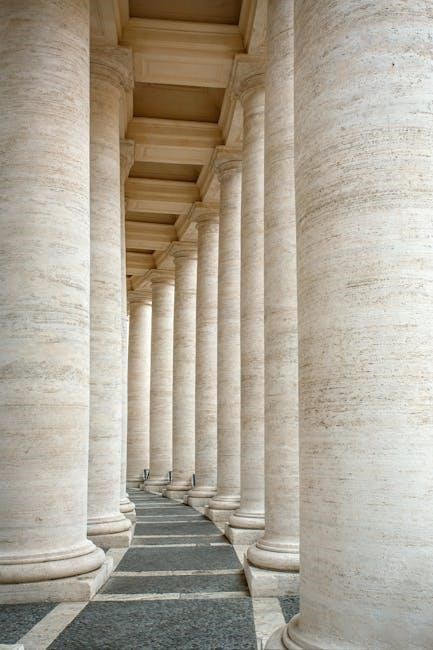
The Vatican’s Political Influence
The Vatican’s political influence spans centuries‚ shaping global diplomacy and international relations through its unique role as a sovereign state and spiritual leader to millions worldwide.
Historical Diplomacy and International Relations
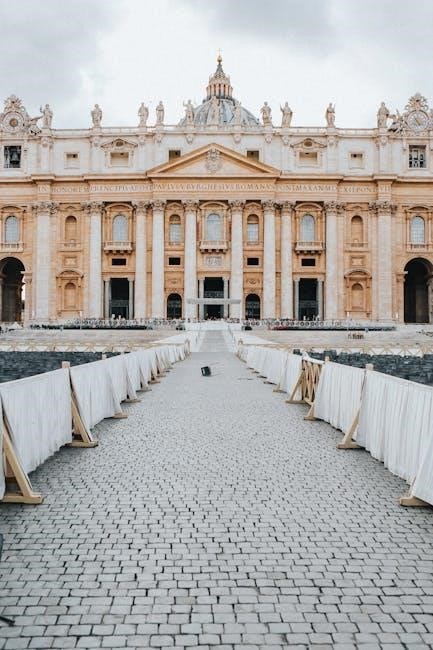
The Vatican has long been a pivotal player in global diplomacy‚ leveraging its spiritual authority to influence international relations. As the world’s smallest sovereign state‚ it has maintained a unique position in geopolitics‚ engaging with nations through papal diplomacy and mediation. Historically‚ the Vatican has mediated conflicts‚ such as the Napoleonic Wars and World War I‚ showcasing its neutral yet impactful role. Its secret archives reveal intricate negotiations with monarchs‚ governments‚ and religious leaders‚ highlighting strategic alliances and disputes. The Vatican’s enduring influence stems from its ability to bridge spiritual and political realms‚ ensuring its voice is heard in global affairs‚ even as it adapts to modern diplomatic challenges.
Modern-Day Diplomatic Efforts
The Vatican continues to play a significant role in modern diplomacy‚ addressing global issues such as human rights‚ climate change‚ and religious freedom. Its diplomatic corps engages with nations and international organizations‚ advocating for peace and justice. The Vatican’s secret archives reveal its strategic efforts to influence contemporary geopolitics‚ including documents on papal visits and negotiations. By leveraging its moral authority‚ the Vatican bridges cultural and political divides‚ fostering dialogue in a fragmented world. Its modern diplomatic efforts reflect a commitment to addressing global challenges while maintaining its historical role as a mediator and advocate for humanity’s common good.
Scandals and Controversies
The Vatican has faced numerous scandals and controversies‚ including allegations of corruption and abuse‚ which have drawn significant international attention and media scrutiny.
Financial Scandals and Mismanagement
The Vatican has faced numerous financial scandals‚ including allegations of money laundering and questionable investments. The Vatican Bank‚ formally known as the Institute for Religious Works‚ has been at the center of these controversies‚ with accusations of facilitating corrupt transactions. In recent years‚ the Vatican was embroiled in a scandal involving the purchase of a luxury property in London‚ which led to internal investigations and the dismissal of high-ranking officials. These financial mismanagement issues have raised concerns about transparency and accountability within the Vatican’s administration. Efforts to reform the Vatican’s financial systems have been ongoing‚ but the legacy of these scandals continues to impact the institution’s reputation and public trust.
Allegations of Corruption and Abuse
Allegations of corruption and abuse within the Vatican have long shrouded its reputation. Historical accounts reveal instances of clergy misconduct‚ including sexual abuse and cover-ups‚ which have sparked global outrage. The Church has faced criticism for its handling of such cases‚ often prioritizing internal discretion over public accountability. Documents from the Vatican’s secret archives have occasionally shed light on these issues‚ revealing a complex web of power and silence. Recent scandals‚ such as the sexual escapades of high-ranking officials and alleged murders tied to holy orders‚ have further tarnished the institution’s image. These allegations continue to fuel public skepticism and demands for greater transparency and reform within the Vatican’s hierarchical structure.
International Headlines and Media Coverage
The Vatican has consistently made international headlines due to its involvement in scandals‚ financial mismanagement‚ and controversial revelations from its secret archives. Media coverage often highlights allegations of corruption‚ abuse‚ and misconduct within the Church‚ drawing global attention to its secretive nature. The Vatican’s historical and modern-day controversies have been extensively documented‚ with reports uncovering ties to secret societies‚ political intrigues‚ and financial scandals. These stories frequently spark public outrage and demand for accountability. The Vatican’s reputation as a symbol of moral authority is repeatedly challenged by such revelations‚ fueling ongoing debates about its role in global affairs and its commitment to transparency.
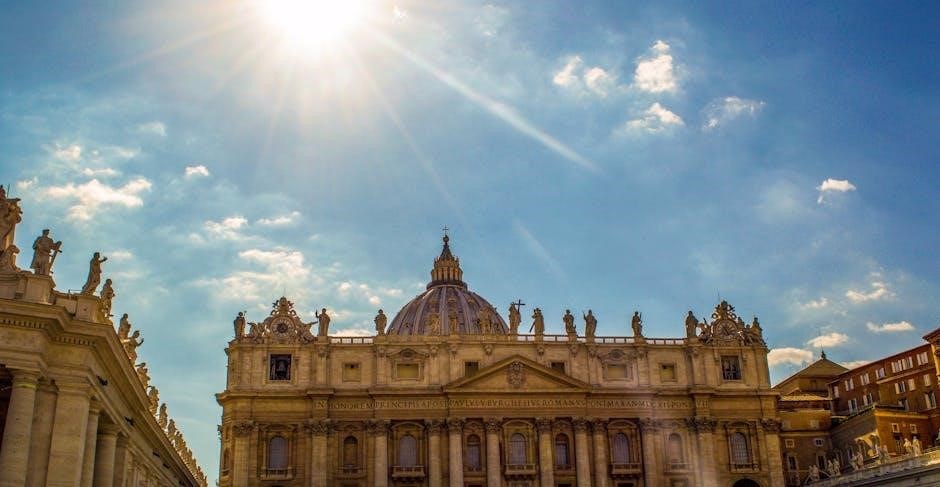
Mysterious Events and Legends
The Vatican is shrouded in mysterious events and legends‚ from secret archives to unexplained historical intrigue‚ captivating global fascination and fueling endless speculation about its hidden truths.
Unresolved Mysteries Surrounding the Vatican
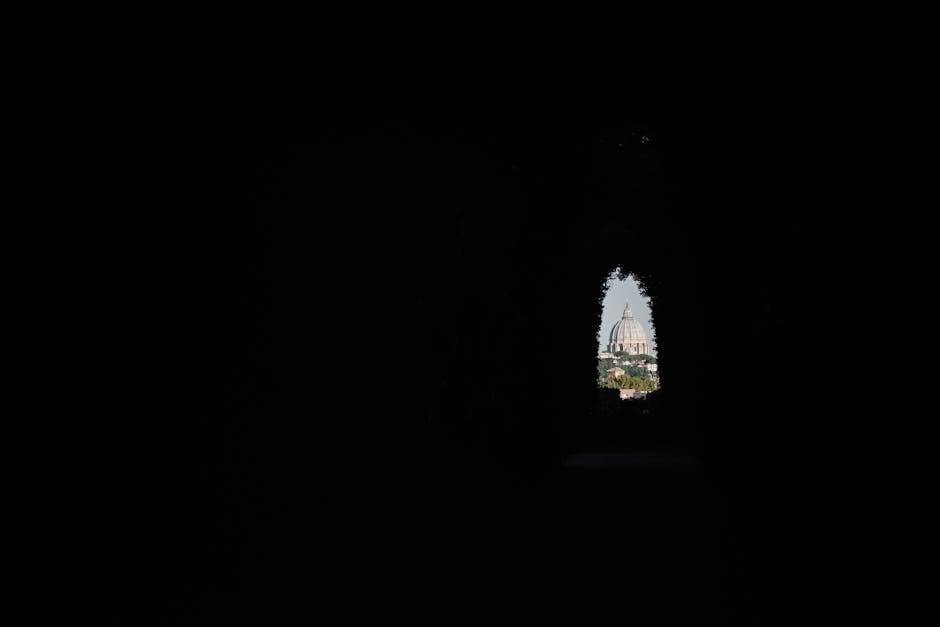
The Vatican is a hub of unresolved mysteries‚ with its secret archives holding centuries of hidden truths. Many historical events remain shrouded in intrigue‚ such as the sudden death of Pope John Paul I and the disappearance of Emanuela Orlandi‚ fueling endless speculation. The archives‚ while partially accessible‚ still conceal documents that could shed light on these enigmas‚ leaving scholars and the public to piece together fragments of history. These mysteries have become part of the Vatican’s legacy‚ blending fact and legend into a fascinating yet perplexing narrative that continues to captivate the world.
Conspiracy Theories and Popular Culture
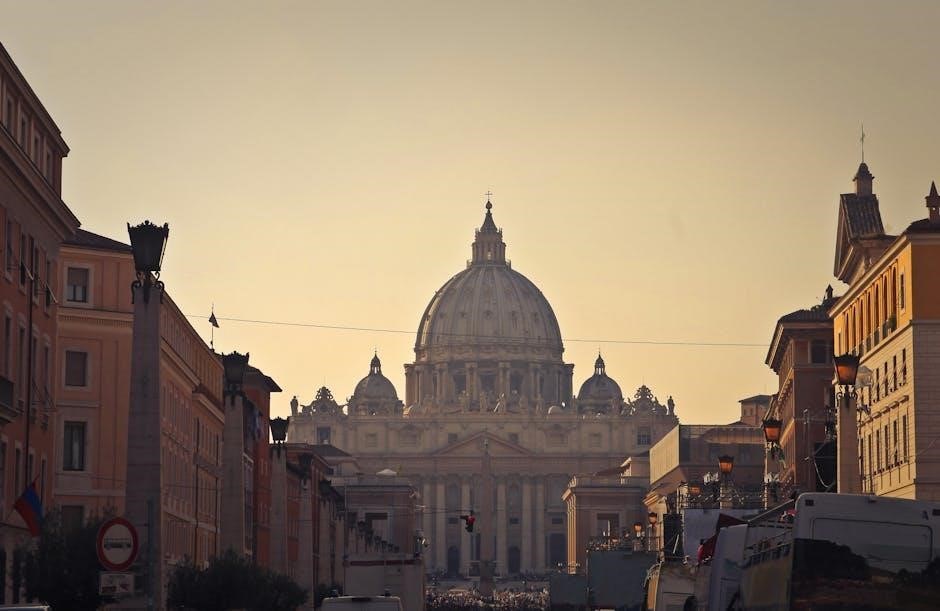
The Vatican’s secrets have long fueled conspiracy theories‚ captivating popular culture. From claims of hidden archives revealing illicit papal deeds to allegations of ties with secret societies like the Illuminati‚ these theories have been sensationalized in books‚ films‚ and media. Works like The Da Vinci Code and Angels & Demons have further cemented the Vatican’s enigmatic image‚ blending fact and fiction. The mysterious symbols on Vatican currency and monuments‚ often linked to Freemasonry‚ have also sparked speculation. While the Vatican dismisses many of these theories‚ they remain a fascinating aspect of its public perception‚ reflecting humanity’s enduring intrigue with the unknown and the allure of hidden truths behind its ancient walls.
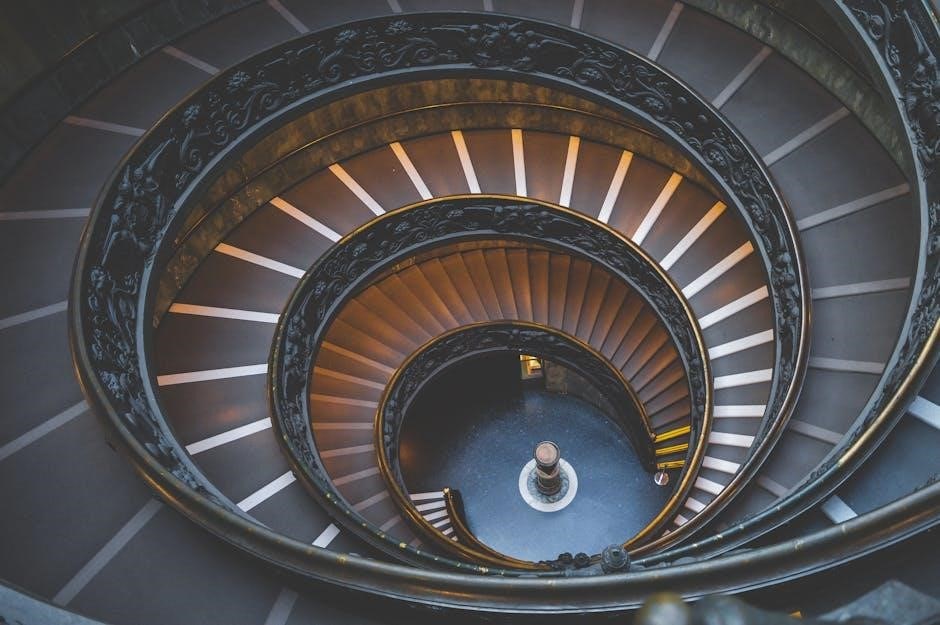
Cultural and Historical Impact
The Vatican’s secrets have profoundly shaped global culture‚ blending mystery with religious influence. Its historical legacy and hidden archives inspire intrigue‚ influencing art‚ literature‚ and societal perceptions worldwide.
The Vatican’s Role in Shaping Global Culture
The Vatican has long been a cornerstone of global culture‚ influencing art‚ literature‚ and spirituality. Its rich historical legacy‚ intertwined with secrecy‚ has captivated audiences worldwide. The Vatican’s secret archives‚ containing centuries of documents‚ have inspired countless works of art and literature‚ blending fact with fiction. From mysterious papal decisions to controversial events‚ these hidden records have shaped perceptions of the Church and its role in society. The Vatican’s cultural impact extends beyond religion‚ influencing politics‚ philosophy‚ and even popular culture‚ making it a timeless subject of fascination and study. Its enduring influence continues to inspire new generations‚ ensuring its place in the global cultural landscape.
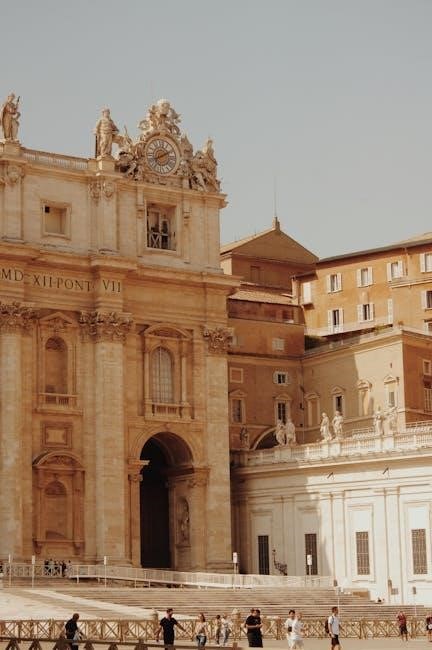
Leave a Reply
You must be logged in to post a comment.